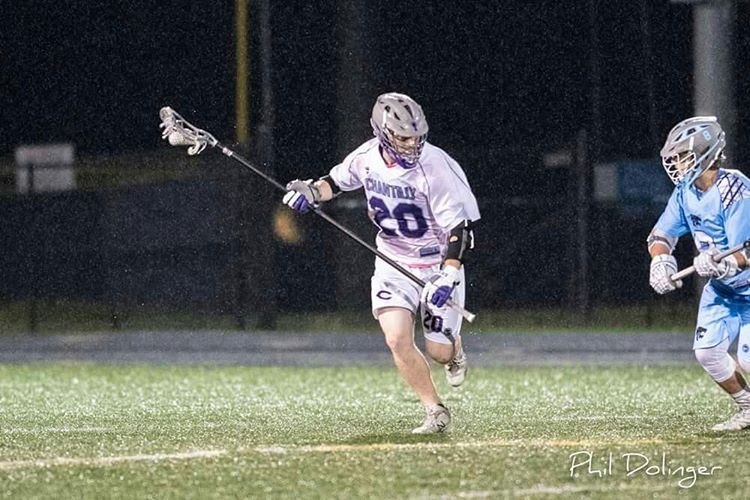Athletes ahead of the commitment curve
Senior and lacrosse defender Ryan Morris runs upfield with the ball during a game. Morris, who committed to Virginia Wesleyan University last year, found the recruiting process to be very rewarding.
October 12, 2017
Many people associate college searches and applications with junior and senior year; however, many student athletes start the process much earlier. The path they take can be very different from some of their peers, with certain athletes committing early in their academic careers.
“I play lacrosse, and the reason I got into it is [because] my neighbor [played in the] lacrosse program here at Chantilly,” senior Ryan Morris, who committed to Virginia Wesleyan in July, said. “I liked how it’s a small school, a private university, and the layout of it isn’t like a traditional college. It’s more modern and contemporary, and I found that very appealing.”
The National Collegiate Athletic Association (NCAA) has a multitude of strict rules and regulations that coaches and athletes must follow through the commitment process. College coaches cannot contact players face-to-face until the September before their senior year, but there are loopholes that allow coaches to contact high school coaches instead of the players themselves.
“For Division I schools, coaches can email you the first Friday in September,” junior Lauren Young, who is currently going through the recruitment process for swimming, said. “It’s a lot of back and forth with emails and phone calls. It’s really hard to find time where both you and the coach are available to talk. The whole process is stressful, but exciting.”
Many coaches assist their athletes through the commitment process.
“The process for me wasn’t difficult because I had awesome coaches who played at the college level [that] were all about helping me out,” senior and lacrosse player Connor McLean, who committed to Bridgewater College last January, said. “It was a little stressful trying to decide where I wanted to go because I wanted to go somewhere where my skills were needed, not somewhere where I was just another number on the roster.”
Research is an important component to college selection for athletes and other students alike.
“I would look up the school and see if I would be interested in going there,” Morris said. “[I looked into] how far away it was, what kind of student body it had, and whether or not I’d enjoy the school.”
Although committing early can be exciting, both academic and athletic responsibilities continue long after the papers have been signed.
“Early commitment gives them a more relaxing [time] because they are already into a college,” assistant football coach Sonny Romine said. “Those schools still have the power to pull their scholarships or decide that they do not want the athlete if [the student] stops passing classes. In the athletic arena, college coaches will notice if players start to coast rather than compete hard all season. I do think scouts put pressure on students, but it is not too much, nor is it necessarily bad pressure.”
While at times it can seem unconventional and even overwhelming, the process can lead to scholarship opportunities as well as the promise of many exciting experiences to come.


